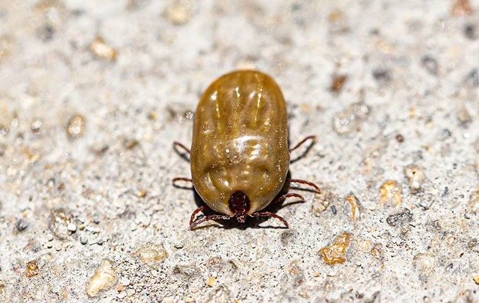When you find a tick or several ticks on your body, it might make you nervous, especially if you're aware of the diseases ticks are able to transmit to humans. Fortunately, most ticks in Akron are not carrying dangerous pathogens, and the ones that are will not instantly make you sick with one bite. Today, we're going to take a look at how tick disease transmission works and what you can do to protect your home from ticks.
When A Tick Is Not Likely To Have A Disease
If you find a six-legged tick attached to your skin, that little bug is called a seed tick. It is a young tick that has not yet grown its two extra legs. As a young tick, there is a lower chance that it has been exposed to a transmittable disease. This is because seed ticks typically attach to small animals. Once they mature, they drop off and search for a larger animal. This is usually when they get on humans. If a seed tick attaches to a human, there is a good chance it has not yet attached to a small animal. That means it has not been exposed to the disease pathogens that are carried by animals—namely, all those scary diseases.
Treatment For Seed Ticks
If you find a seed tick on you, it is most likely to be a Lone Star tick. These ticks are common in Akron, and they commonly feed on humans. When you work on your landscaping, it is possible to have these ticks get on you and attach to your skin. When they do, they'll look like tiny little specks of dirt. The treatment for seed ticks is simple. Use soapy water to wash the ticks off your skin. After removal, you may notice red spots on your skin. Those spots are caused by a reaction to the saliva of the seed ticks. It is unlikely that they are related to disease transmission.
How Ticks Transmit Diseases
When a tick feeds on an infected animal, it draws out microorganisms from the animal as it feeds. It stores the microorganisms in its gut and those tiny organisms make their way into the saliva of the tick. If that tick were to bite you, it would transmit the organism to you as it feeds. Your body is able to fight off this unwanted invasion to a certain extent. A tick must stay attached for 24 to 48 hours to deliver enough disease-causing organisms to make you sick. Therefore, early detection and removal can prevent acute and chronic illness.
Tick Removal
It is important to remove a tick properly. You don't want to pinch the body of a tick as this will introduce more disease-causing bacteria into the wound. The best tool for the job is a tick-removal tool. If you don't have one available, look for some needle-nose tweezers. Grip the tick as close to the head as possible and pull out and upward. Store the tick in a Ziplock baggie just in case you need to present it to your physician. Treat the wound with soapy water and antibacterial cream.
Watch For Symptoms
After you have removed a tick, it is important to be aware of the symptoms associated with disease transmission. The list of symptoms vary with the diseases, but any sign of sickness should prompt you to speak with your physician. Here are a few to be aware of:
- Lyme disease can cause a bullseye rash, which is referred to as an erythema migrans (EM) rash.
- Some tick diseases cause a general rash to occur
- You may experience joint pain, fatigue, or a fever.
- Ehrlichiosis can cause flu-like symptoms, such as nausea, vomiting, diarrhea, and coughing.
Don't Get Bitten Again
If you get bitten by a tick in your yard, the next step is to avoid getting another bite from ticks in your yard. There are many steps you can take to reduce your chances of getting a tick bite in your yard.
- Put crushed rock or mulch around outdoor areas. Ticks don't prefer to walk across these materials.
- Address moisture issues, such as clogged gutters and perimeter saturation. This makes it more difficult for ticks to survive.
- Take steps to reduce wildlife traffic. Animals bring ticks into yards. Apply fencing to keep animals from using voids as harborage, keep your trash in covered containers that can't be easily knocked over, and move bird feeders away from your exterior walls.
Professional Tick Control Service In Akron
At Epcon Lane Pest Control, we offer flea and tick control service for residents of Akron and our surrounding service areas in Northeast Ohio. If you want the best possible control for ticks, this is definitely the way to go. Reach out to us today and request a free inspection to get started.

